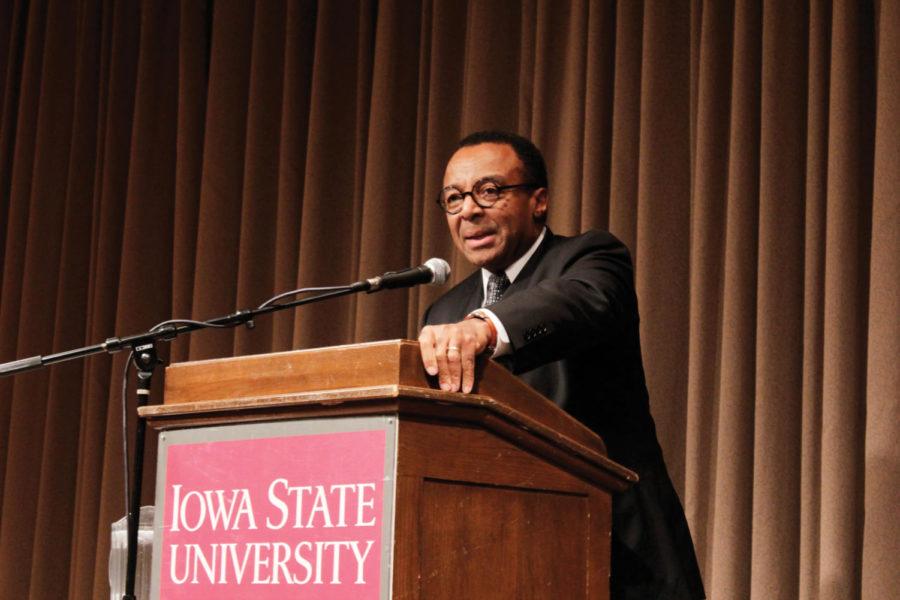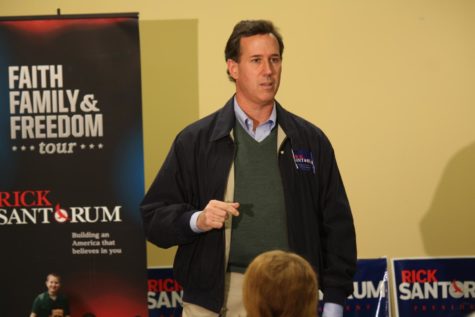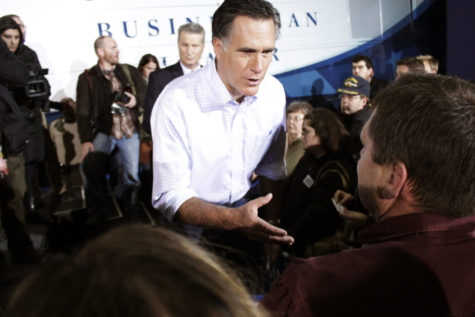Pulitzer Prize winner Clarence Page gives lecture on the importance of Iowa in presidential races
September 14, 2011
The presidential campaign season rolls around every four years, transforming Iowa from a small blot on a map into a national hub filled with major politicians and journalists.
Clarence Page, a 1989 Pulitzer Prize winner, said the importance of Iowa relies on the state’s ability to create narratives for the candidates.
“A good narrative has all but replaced the need for a party to have a good platform,” Page said.
Page, who began his journalism career as a freelance writer and photographer at 17 years old, is a nationally syndicated columnist and a member of the Chicago Tribune’s editorial board.
“I have read his articles for years,” said audience member Donald Raker. “I think he is a very thoughtful and intelligent writer.”
Page spoke to a packed crowd in the Sun Room of the Memorial Union Wednesday night. His lecture was entitled, “A Campaign Narrative: Why Iowa Matters — or Not!”
At the lecture, Page said the news audience today feels entitled to their own facts.
“Today’s audiences no longer choose their own news outlets,” Page said. “They choose their own versions of reality.”
He said that the positions matter less than what the positions seems to mean.
“The rise of narrative can render the positions on the issue almost meaningless,” he said.
Narratives have the potential to cause a presidential candidate to go from a superhero to a pin cushion, Page said. He explained that candidates use narratives to negatively define other candidates.
Texas Gov. Rick Perry, a 2012 Republican candidate, has been the victim of negative narratives.
“[Perry] attracts narratives like fly paper,” he said.
Page explained the reason why narratives are so important is because 90 percent of politics is perception.
“Narratives shape our perception,” he said. “Campaigns are like trials: They’re a contest to see which side can sell the most appealing and persuasive vision of itself.”
As the first state to hold a major voting event, Iowa “sets the stage for what narratives are made and remade,” Page said.
According to Page, the emerging narrative for the 2012 presidential campaign is anger. He said that is the reason candidates like Tim Pawlenty are no longer in the race.
“The big question for Republicans has become which candidate can express the anger of the party’s conservative base,” he said.
Political coverage has become more like a horse race, Page said. He explained that candidates’ words are merely decorative. He said those words have become only about how they will affect other candidates.
Page said the rising prominence of narratives should be a warning to the public. Voters should not automatically assume that a good candidate will make a good president.
“We enjoy our free press and freedom of speech,” he said. “Candidates spend hundreds of millions of dollars to drive their campaign narratives. The press and the people can and must do all we can to take [our freedom] back.”









